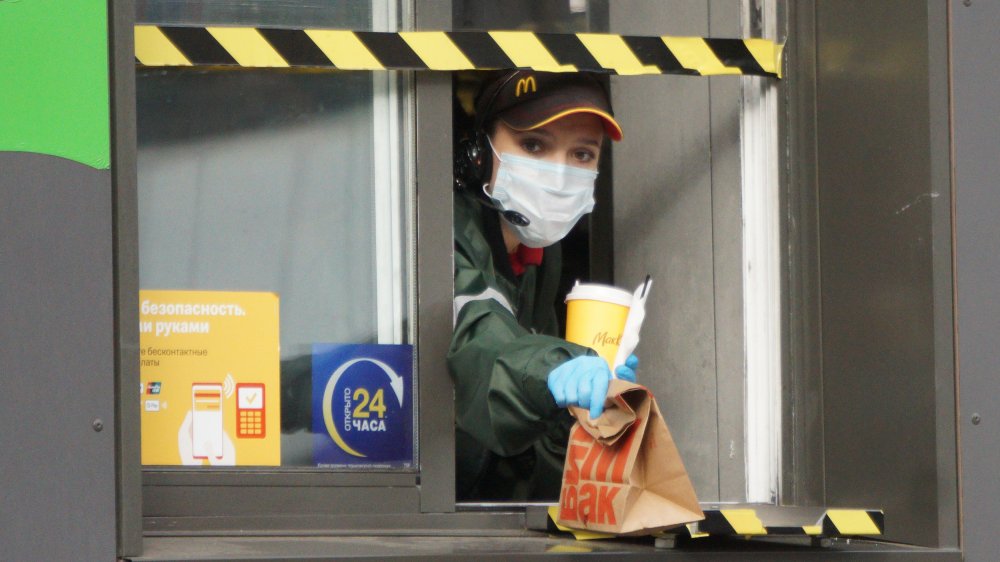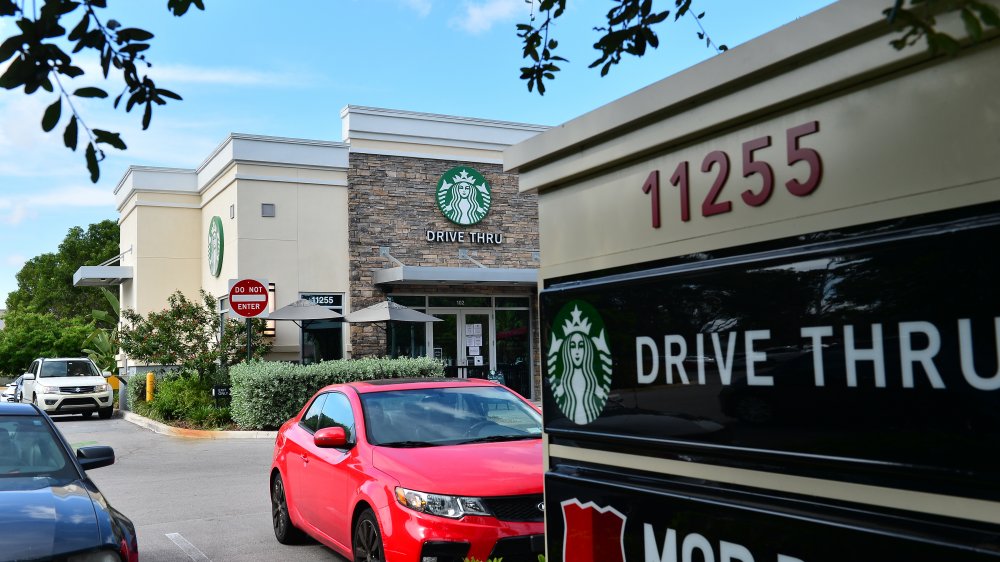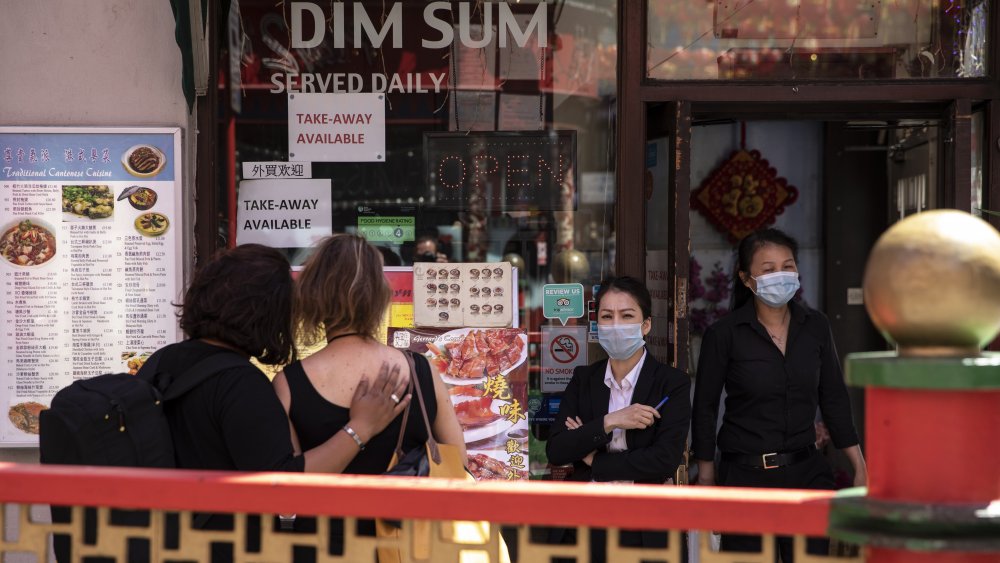Fast Food Is Thriving During The Pandemic. Here's Why That's A Real Problem
Few businesses have been hit as hard by the COVID-19 pandemic as restaurants. The industry lost 2.3 million out of 12 million jobs, and an estimated 100,000 restaurants across the U.S. will close this year (via The Wall Street Journal). While all restaurants, from the mom-and-pop diner to the big chains, have been hurt by forced closures and stay-at-home orders intended to reduce the spread of the novel coronavirus, the chains have benefited in ways small, independent restaurants couldn't. Some customers have even changed their dining habits, possibly for the long term, by turning away from their favorite local establishments and visiting chain restaurants more often.
Fast-food chains have the advantage of mobile apps and efficient drive-thrus that have made purchasing meals convenient and safe. While dining rooms at places like McDonald's and Pizza Hut have been closed, chains have been running their drive-thrus and delivery service throughout the pandemic. This has enabled them to keep at least some money coming in. Spending at the big chain restaurants was down more than 20 percent during the height of the pandemic, in May. But sales for that month at independents with just one or two locations fell by more than half. Diners who found their favorite neighborhood restaurant to be closed for weeks or months started visiting the chains more. The new customers helped one franchisee who operates 400 fast-food restaurants see 18 percent growth in sales at his Pizza Hut stores.
One setback can force a single-location restaurant to close permanently
The news hasn't been all good for the big chains. Ruby Tuesday, California Pizza Kitchen, and several other casual-dining chains filed for bankruptcy protection. Starbucks, Pizza Hut, and Dunkin' plan to close a combined 1,500 locations. Still, chains have the deep pockets and the flexibility to grow while the market is favorable. The company that owns Olive Garden wants to expand into Manhattan now that rents are cheaper, according to The Wall Street Journal. Despite the downturn brought on by the pandemic, Starbucks will be able to invest $1.5 billion over the next year to open 800 new locations in the U.S. and China that will emphasize drive-thrus and pick-up counters.
Small, family-owned restaurants don't have as many options. One major setback was all it took for some single-location restaurants to close permanently. A restaurant in Manhattan's SoHo neighborhood shuttered after the landlord refused to provide rent relief. A cocktail bar and a donut shop in a Mississippi college town closed when the university decided to hold all classes online.
Independents look for ways large and small to survive the pandemic
Independents have gotten creative to survive. Canlis, a fine-dining establishment in Seattle, retained its 115 employees by trying 10 different side ventures – among them a pop-up bagel shop, community-supported agriculture boxes, and an outdoor crab shack (via The New York Times). Some small restaurants plugged the gaps in government aid by taking donations on GoFundMe (via The Counter). The American Egg Board is helping smaller restaurants with a program designed to generate more traffic during breakfast (via Feedstuffs).
The New York Times offers a list of things you can do to help small, independent restaurants. This includes basic stuff such as ordering takeout more often or tipping big. Also, people with computer skills can help a small restaurant develop its website – a way to boost business at a time when people do less window shopping and more online browsing to find a place to eat.
But if independent restaurants are going to make it through winter, when outdoor dining will no longer be an option in most places, they might need a lot more help than that. The Independent Restaurant Coalition is lobbying the Senate to approve $120 billion for restaurants with fewer than 20 locations (via The Washington Post). Without that money, said TV personality and chef Andrew Zimmern, independents could experience an "extinction event" with up to 85 percent closing by December. "Time is running out to save us. Literally, winter is coming," Zimmern said.


